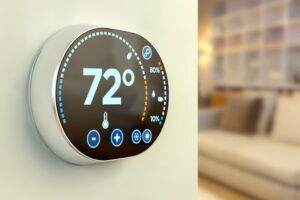 The thermostat you use to control your heating and cooling systems is an important component. It essentially serves as the “brain” of your HVAC systems, and without it, you simply could not get the comfort that you need in your home.
The thermostat you use to control your heating and cooling systems is an important component. It essentially serves as the “brain” of your HVAC systems, and without it, you simply could not get the comfort that you need in your home.
In addition to that, you may have a thermostat, but if it’s old and outdated or is miscalibrated, it could be incorrectly reading the temperature of the room and therefore causing your HVAC systems to work very inefficiently.
If you came across this blog post, chances are you’re already thinking about a thermostat upgrade. If you notice any of the problems we’re going to mention below, it is definitely time for an upgrade–and we’ll let you know why a smart thermostat might be the perfect option for you.

 Getting professional repairs done for your air conditioner when it needs it is one of those services you don’t want to put off. Delaying AC repairs can leave you with a completely broken down machine, and no way to stay comfortable throughout the rest of our long and hot summer.
Getting professional repairs done for your air conditioner when it needs it is one of those services you don’t want to put off. Delaying AC repairs can leave you with a completely broken down machine, and no way to stay comfortable throughout the rest of our long and hot summer.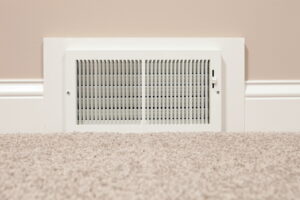 If you’ve been following our blog for very long, then you’ve likely heard at least a little bit about the importance of maintenance. Preventative maintenance is vital to making sure that your air conditioner and heating system stay in great shape. But it’s important to know that not all HVAC systems are created equal, and therefore have different maintenance tune-up needs.
If you’ve been following our blog for very long, then you’ve likely heard at least a little bit about the importance of maintenance. Preventative maintenance is vital to making sure that your air conditioner and heating system stay in great shape. But it’s important to know that not all HVAC systems are created equal, and therefore have different maintenance tune-up needs.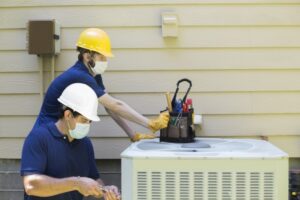 There aren’t many things that HVAC professionals will tell you to do on your own when it comes to servicing your cooling system. And the fact of the matter is, for big repair needs, this is true, especially since there are various components of an HVAC system that professionals need special training and licensing for, such as the refrigerant in your air conditioner, or natural gas if we’re talking about a heating system.
There aren’t many things that HVAC professionals will tell you to do on your own when it comes to servicing your cooling system. And the fact of the matter is, for big repair needs, this is true, especially since there are various components of an HVAC system that professionals need special training and licensing for, such as the refrigerant in your air conditioner, or natural gas if we’re talking about a heating system.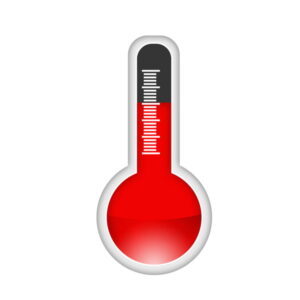 Summer heatwaves are fairly common in the southern portions of the United States. While summer temperatures in New Jersey and New York rarely reach over 90 degrees Fahrenheit, it still gets pretty humid in the Garden State. During these heatwaves, you should focus on keeping the inside of your home cool and comfortable.
Summer heatwaves are fairly common in the southern portions of the United States. While summer temperatures in New Jersey and New York rarely reach over 90 degrees Fahrenheit, it still gets pretty humid in the Garden State. During these heatwaves, you should focus on keeping the inside of your home cool and comfortable. 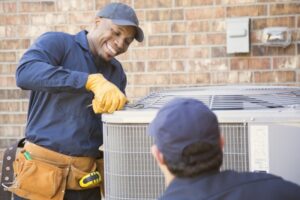 In our previous blog post, we addressed a question that many of our homeowners ask in late winter/early spring–
In our previous blog post, we addressed a question that many of our homeowners ask in late winter/early spring–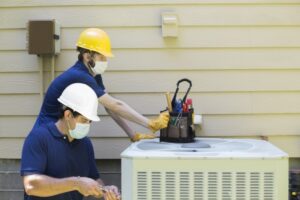 With daytime temperatures still in the high 50s for now, it may seem strange to be mentioning air conditioning maintenance. Perhaps you even think that it’s way too early for this service. But the truth is, now is a perfect time!
With daytime temperatures still in the high 50s for now, it may seem strange to be mentioning air conditioning maintenance. Perhaps you even think that it’s way too early for this service. But the truth is, now is a perfect time!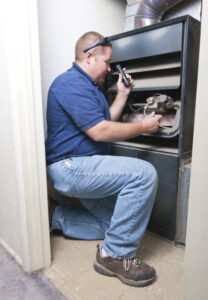 The last thing any New Jersey homeowner needs in the middle of winter is a heating system that’s malfunctioning, right?
The last thing any New Jersey homeowner needs in the middle of winter is a heating system that’s malfunctioning, right?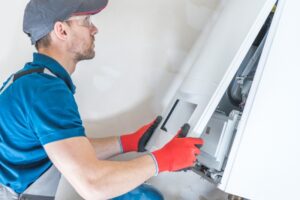 A number of homeowners in our area choose an electric furnace over a gas-powered system due to their convenience and flexibility. After all, practically all homes are wired for electricity, so electric furnaces are a reliable option for any homeowner. They’re also a bit safer than gas furnaces since there are no hazards from toxic or combustible gases. That’s not to say that gas furnaces are inherently dangerous–just that this is a reason that many homeowners choose an electric furnace!
A number of homeowners in our area choose an electric furnace over a gas-powered system due to their convenience and flexibility. After all, practically all homes are wired for electricity, so electric furnaces are a reliable option for any homeowner. They’re also a bit safer than gas furnaces since there are no hazards from toxic or combustible gases. That’s not to say that gas furnaces are inherently dangerous–just that this is a reason that many homeowners choose an electric furnace! There’s no denying that when you live somewhere like the Emerson area, you need a quality heating system in place. Not only that, but you need to make sure it’s well-maintained. This means scheduling professional tune-ups for your heater each year–twice a year if you’re using a year-round heat pump system. Tune-ups help your heater work as effectively and efficiently as possible for as long as possible. Plus, tune-ups can help prevent up to 85% of the repairs a furnace or heating system may ever need in its lifetime! This is because, during your tune-up, we’ll alert you to small repair needs so you can take care of them before they turn into larger emergencies.
There’s no denying that when you live somewhere like the Emerson area, you need a quality heating system in place. Not only that, but you need to make sure it’s well-maintained. This means scheduling professional tune-ups for your heater each year–twice a year if you’re using a year-round heat pump system. Tune-ups help your heater work as effectively and efficiently as possible for as long as possible. Plus, tune-ups can help prevent up to 85% of the repairs a furnace or heating system may ever need in its lifetime! This is because, during your tune-up, we’ll alert you to small repair needs so you can take care of them before they turn into larger emergencies.